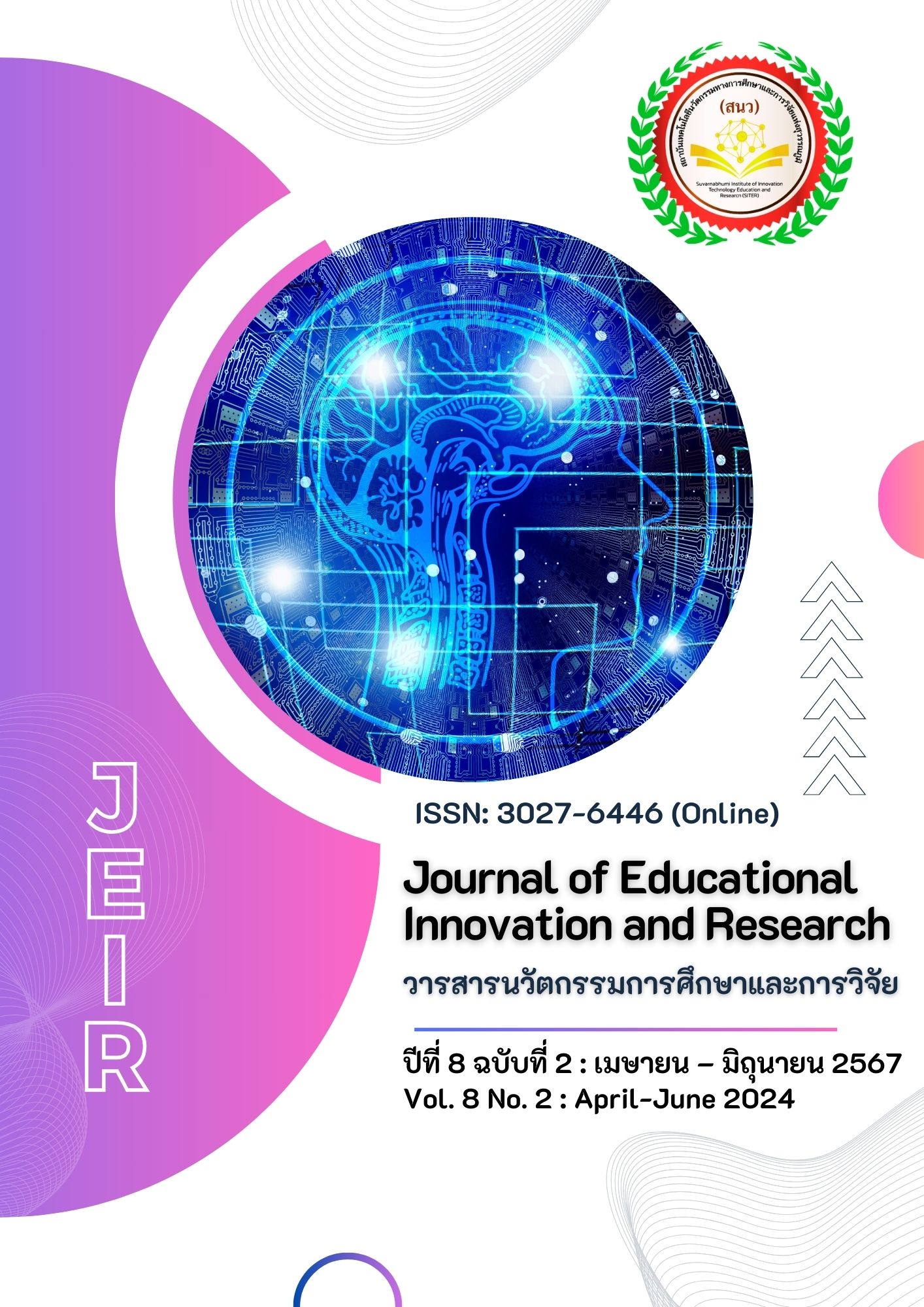การพัฒนาแนวทางการจัดการแบบมีส่วนร่วมเพื่อลดความขัดแย้ง ของผู้พักอาศัยในชุมชน
Main Article Content
บทคัดย่อ
การวิจัยวัตถุประสงค์ 1) ศึกษาลักษณะสภาพปัจจุบันในการจัดการแบบมีส่วนร่วมเพื่อลดความขัดแย้งของผู้พักอาศัยในชุมชน 2) ศึกษาปัญหาและอุปสรรคที่มีต่อการจัดการแบบมีส่วนร่วมเพื่อลดความขัดแย้งของผู้พักอาศัยในชุมชน และ3) เพื่อศึกษาแนวทางการจัดการแบบมีส่วนร่วมเพื่อลดความขัดแย้งของผู้พักอาศัยในชุมชน เป็นการวิจัยเชิงคุณภาพ เก็บรวบรวมข้อมูลโดยใช้แบบสัมภาษณ์ โดยผู้ให้ข้อมูลสำคัญ ได้แก่ คณะกรรมการนิติบุคคลอาคารชุด จำนวน 10 คน ผู้บริหารของบริษัทรับบริหารนิติบุคคลอาคารชุดหรือผู้จัดการอาคารชุดพักอาศัย จำนวน 10 คน และผู้อยู่อาศัยในอาคารชุด จำนวน 10 คน รวมทั้งสิ้น 30 คน โดยใช้วิธีการเลือกตัวอย่างแบบเจาะจง (Purposive sampling) ทำวิเคราะห์ข้อมูลโดยวิธีการวิเคราะห์เชิงเนื้อหา
ผลจากการวิจัยพบว่า 1) ลักษณะสภาพปัจจุบันพบว่า 1.1) ความเป็นส่วนตัว 1.2) จำนวนผู้อยู่อาศัย 1.3) สถานะทางสังคม 1.4)วัตถุประสงค์การอยู่อาศัย และ 1.5) สภาพแวดล้อม ส่งผลต่อสภาพปัจจุบันในการจัดการแบบมีส่วนร่วมเพื่อลดความขัดแย้งของผู้พักอาศัยในชุมชน 2) ปัญหาและอุปสรรคที่มีต่อการจัดการแบบมีส่วนร่วมเพื่อลดความขัดแย้งของผู้พักอาศัยในชุมชน มีผลมาจาก 2.1)กฎหมายเกี่ยวกับอาคารชุด 2.2) สภาพแวดล้อมทางสังคม 2.3) สภาพเศรษฐกิจ 2.4) พฤติกรรมที่ไม่พึงประสงค์ และ2.5) การขัดแย้งด้านผลประโยชน์ และ3)แนวทางการจัดการแบบมีส่วนร่วมเพื่อลดความขัดแย้งของผู้พักอาศัยในอาคารชุด มีการประชุมปรับฟังความคิดเห็น โดยสร้างการรับรู้ถึงสิทธิในการจัดการการเงินในชุมชนเพื่อเป็นการสร้างความสัมพันธ์ที่ดีระหว่างผู้พักอาศัยต่อไป
Article Details

อนุญาตภายใต้เงื่อนไข Creative Commons Attribution-NonCommercial-NoDerivatives 4.0 International License.
เอกสารอ้างอิง
Benoit, E., & Eveleigh, A. (Eds.). (2019). Participatory archives. Facet Publishing.
Bercovitch, J. (2019). Social conflicts and third parties: Strategies of conflict resolution. Routledge.
Bloch, E. (2018). On Karl Marx. Verso Books.
Cohen, J. M., & Uphoff, N. T. (1981). Rural Development Participation: Concept and Measuresfor Project Design Implementation and Evaluation. Ithaca, NY: Rural DevelopmentCommittee Center for International Studies, Cornell University.
Condominium Act. (2008). Condominium Act No. 4. http://www.ratchakitcha.soc.go.th
Curtis, M. (Ed.). (2017). The Modern Social Conflict: The Politics of Liberty. Routledge.
Dahrendorf, R. (2017). The modern social conflict. Routledge.
Elgoibar, P., Euwema, M., & Munduate, L. (2017). Conflict management. In Oxford research encyclopedia of psychology.
Filley, A. C., & Dey, M. (2017). Immune system, friend or foe of oncolytic virotherapy?. Frontiers in oncology, 7(1), 106-120.
Fuchs, C. (2019). Karl Marx in the age of big data capitalism. https://www.uwestminsterpress.co.uk/site/chapters/e/10.16997/book29.d/
Kharadze, N. (2021). Organizational conflict management challenges. European Journal of Economics and Business Studies,10(1), 30-41.
Kritayanavaj, B. (2017). Guidelines for community management, condominiums and housing estates. http://www.softbizplus.com.
McKibben, L. (2017). Conflict management: importance and implications. British Journal of Nursing, 26(2), 100-103.
Menny, M., Palgan, Y. V., & McCormick, K. (2018). Urban living labs and the role of users in co-creation. GAIA-Ecological Perspectives for Science and Society, 27(1), 68-77.
Mosleh, W. S., & Larsen, H. (2021). Exploring the complexity of participation. Co Design, 17(4), 454-472.
Nared, J., & Bole, D. (2020). Participatory research and planning in practice (pp. 227). Springer Nature.
Pina-Cabral, J. D. (2018). Modes of participation. Anthropological Theory, 18(4), 435-455.
Popescu, M. G. (2018). General Aspects on Matrimonial Regime of Legal Community. Common Assets in Condominium. Journal of Humanistic and Social Studies,9(1), 103-114.
Real Estate Information Center. (2019). Real estate 62 dust bleed, state pushes full aid measures. https://www.reic.or.th
Reed, M. S., Vella, S., Challies, E., De Vente, J., Frewer, L., Hohenwallner‐Ries, D., & van Delden, H. (2018). A theory of participation: what makes stakeholder and public engagement in environmental management work?. Restoration ecology, 26(1), 7-17.
Ruiu, M. L. (2016). Participatory processes in designing cohousing communities: the case of the community project. Housing and Society, 43(3), 168-181.
Sanoff, H. (2016). Integrating programming, evaluation and participation in design: A theory Z approach. Routledge.
Soliku, O., & Schraml, U. (2018). Making sense of protected area conflicts and management approaches: A review of causes, contexts and conflict management strategies. Biological Conservation, 22(1), 136-145.
Sripoungpoet W. (2020). The Satisfaction of Residentstowards TheManagementJuristic PersonofBaan Eua-Arthorn Condominium in Bangkok. Sarasatr, 3(2), 423-436.
Thaimee T. (2021). The Legal Problems of Condominium Management. Nitipat Nida Law Journal, 10(10), 74-94.
Van Deth, J. W. (2016). What is political participation?. In Oxford research encyclopedia of politics.
Vergara, L. M., Gruis, V., & van Der Flier, K. (2019). The role of third sector organisations in the management of social condominiums in Chile: the case of Proyecto Propio. International Journal of Housing Policy, 19(3), 354-384.
Wirtz, B. W., Daiser, P., & Binkowska, B. (2018). E-participation: A strategic framework. International Journal of Public Administration, 41(1), 1-12.


